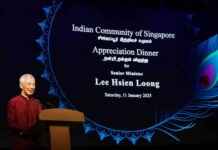The trial of a 39-year-old father for allowing his daughter to touch his private parts for sex education has sparked controversy and raised questions about appropriate parenting practices. This incident allegedly occurred in 2016 when the girl was just five to six years old, and the father is now facing charges of sexual exploitation of a child.
**Family Dynamics and Intentions**
The identities of the family involved are protected by a gag order, but the details of the case have been brought to light during the trial. The father of three does not deny the act but claims he did it at his wife’s request to teach their daughter about male and female body parts. The daughter, now 14, chose not to testify against her father, expressing concern for the consequences he may face.
**Allegations and Defence**
In addition to the charge of sexual exploitation, the man faces accusations of criminal intimidation and physical assault on a 12-year-old girl. The allegations were initially reported by the man’s eldest daughter, who had expressed curiosity about the differences between male and female body parts.
**Parenting Dilemma and Legal Ramifications**
The father’s actions have raised questions about the boundaries of parental education and whether his methods were appropriate. While he claimed good intentions to educate his daughter and prevent her from falling into bad company, the prosecution has disputed his wife’s involvement in the incident. The court is now tasked with determining the legality and ethical nature of the father’s actions.
**Impact and Sentencing**
The consequences of the trial could have lasting effects on the family dynamics and the father’s relationship with his children. The charge of procuring an indecent act from a child carries a potential jail term of up to five years and a fine of up to S$10,000.
As we reflect on this case, it begs the question: How far should parents go to educate their children about sensitive topics, and what are the appropriate boundaries in such situations? It is a complex issue that requires a delicate balance between protecting children and respecting parental autonomy.


























